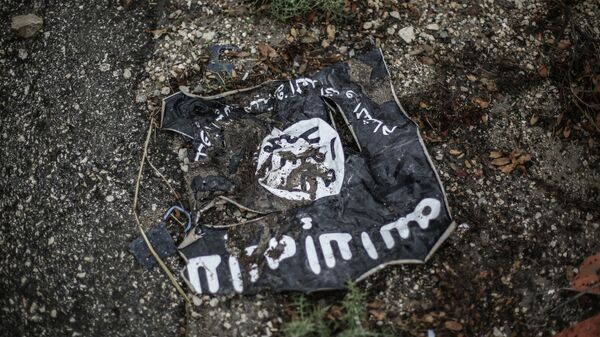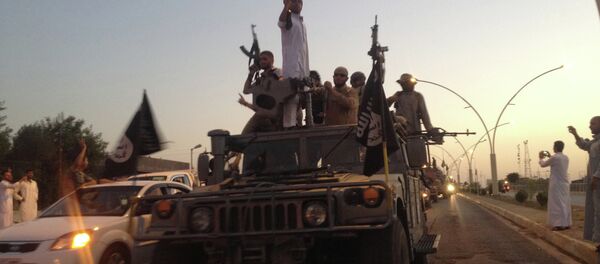WASHINGTON (Sputnik) — ISIL used an unknown gas against Syrian Kurdish fighters, who are also known by the acronym YPG, that caused physical distress, the monitoring group Syrian Observatory for Human Rights (SOHR) said after taking doctor’s testimony and conducting an analysis.
“SOHR documented Islamic State use of gas during its shelling that targeted the village of Rajm al-Tfihi… in the province of al-Hasakah on 28 June, according to doctors’ testimony and analyses, where SOHR knew that the shelling by gas caused vomiting, suffocation and eye-burn suffered by 12 YPG fighters,” the monitoring group said on Friday.
The YPG, backed by US-led Coalition airstrikes, have been in intense battles with ISIL in al-Hasakah and other villages in north and northeast Syria.
The monitoring group, however, has not been able to determine whether the gas used was chlorine or another chemical gas.
The claims the ISIL used gas comes as the United States last week circulated a draft UN resolution aimed at identifying and bringing to justice people behind chemical weapons attacks in Syria.
SOHR and opposition forces have documented numerous cases of the Syrian regime using chlorine barrel bombs against rebels and civilians.
In May 2015, the White House said it would work with Russia to apply pressure on Syria to stop the use of chlorine weapons if the reports of the gas bomb strikes are confirmed.
After a sarin gas attack near Damascus that killed more than 1000 people in 2013, Syria joined the Organization for the Prohibition of Chemical Weapons and agreed to destroy its chemical weapons arsenal.
At the end of October 2014, the OPCW reported that nearly 98 percent of chemical weapons removed from Syria had been destroyed, but concern remains ISIL could gain access to chlorine gas bombs or undeclared sarin gas stocks.





